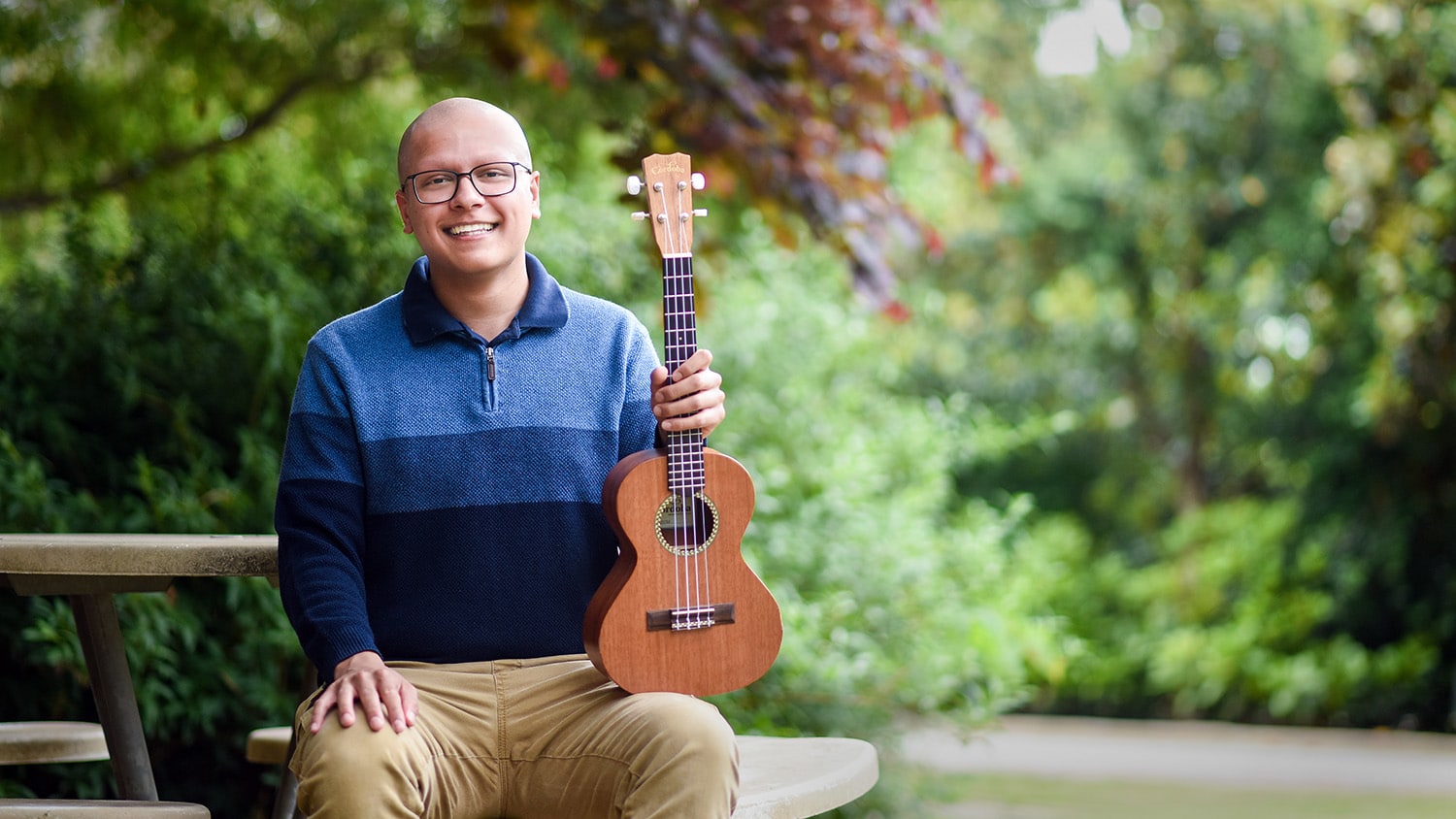NC State’s 4th Churchill Scholar Prepares for Deep Dive Into Genetics
Nikhil Milind, who graduated this year, is going to Cambridge University to continue his studies into links between human genetics and diseases.

Nikhil Milind has already lived on two continents. Now, thanks to a prestigious Churchill Scholarship, he is preparing to move to a third.
Milind, who graduated in May with degrees in computer science and genetics, will attend Cambridge University in England where he will continue research into connections between human genetics and diseases and earn a master’s degree in biological sciences.
He is NC State’s fourth Churchill Scholar and one of 17 chosen from around the country to take part in a program conceived by former Prime Minister Winston Churchill to bring Americans over to study at one of the world’s elite universities. NC State University was one of only two schools in the country to be awarded two scholarships this year.
“It’s a one-year research-based master’s,” Milind says. “From what I understand, there’s no coursework; I’ll just be doing research. It’ll be very accelerated, but there are great advantages to it as well. From what I’ve heard, past Churchill Scholars have never felt it was too little.”
Leaving His Comfort Zone
The Churchill Scholarship was an unexpected turn in Milind’s academic path. He had already moved to California to attend grad school at Stanford University when he learned he had been selected. After some thought, he decided to defer his admission to Stanford to take advantage of the opportunity.
“I think, from what I’ve learned about myself, that pushing myself out of my comfort zone is when I’ve done some of the greatest work I’ve done and also learned the most and enjoyed myself the most, too,” he says.
Milind will work with a primary investigator in the field of functional immunogenomics, which examines why immune systems respond differently to diseases. The topic is especially relevant given the COVID-19 pandemic.
“We heard so much about how some people need ventilation and other people are completely fine, or some people were asymptomatic and other people were highly susceptible,” he says. “Those point to underlying genetic causes. The broad question is why we see so many immune diseases, but they present differently in different people.”
The research builds on work Milind did at NC State. Under David Aylor, a professor whose specialties include epigenetic modification and reproductive biology, Milind examined data from experiments with mice to see if there were underlying genetic causes for their immune systems’ responses to influenza and asthmatic allergens.
Cambridge University is affiliated with the Wellcome Sanger Institute, which specializes in studying genomes. Milind’s primary project will be to study messenger RNA and protein molecules in the blood to identify potential genetic biomarkers of dangerous sepsis responses. Biomarkers are especially important because they would inform medical professionals of patients who need help before they even display any symptoms of sepsis.
He calls it “a deep dive into genomic data I’ve never touched before” that could shed light on why some patients recover with antibiotics and others get rushed to the intensive care unit.
“If you have biomarkers or genotypes from a patient, you can say, ‘Hey, this person has a high risk for sepsis. We want to isolate them early. We want to treat them early.’” he explains.
Travel and Friends
A year across the pond offers opportunities other than specialized research. Milind is looking forward to visiting France, Italy and other countries. He’s looking forward to meeting other members of his Churchill cohort, although he knows one already. Fellow scholar Ana Sofia Uzsoy graduated with Milind and, like him, came to NC State as a Park Scholar and won the Goldwater Scholarship in 2019. She will be studying machine learning and machine intelligence. Other scholars’ fields include plant sciences, public policy and pure mathematics.
“It’s all these different people doing completely different things, and we’ve been brought together in one program. I think the discussions will be lively,” Milind says.
That’s not all that will be lively; he is packing his ukulele. He’s been playing for a few years now and says it’s a great instrument for socializing.
“Everyone can just jive, even if you’re the worst singer in the world,” he says. “You’ll join in if it’s a song you know.”
When he returns to the United States next year, he’ll be back on his academic path. He’ll pursue a doctoral degree in genetics at Stanford with funding from a National Science Foundation fellowship that he was also able to defer a year.
For now, however, Milind faces a busy summer: obtaining a visa, packing, exploring California while he has the chance and reflecting, with gratitude, on how he got to where he is today.
“Just thinking about the Churchill, for example, we had this whole faculty panel that helped us with the application process,” he says. “This is a bunch of faculty who come out, take time out of their busy schedules, review applications and give very useful feedback. I know that without the university, I had no chance to make it as far as I have. Thank you to everyone, including professors at NC State, my family and friends — everyone who has supported me. “
